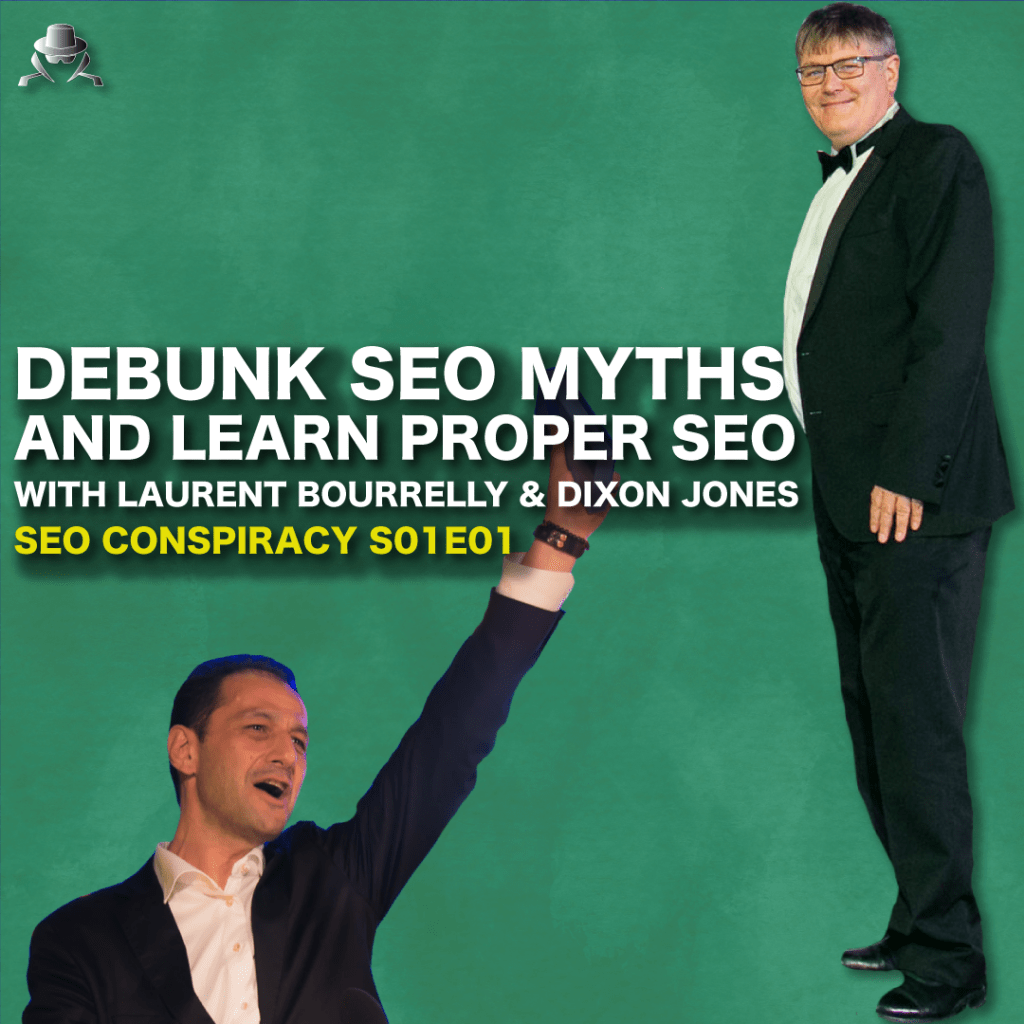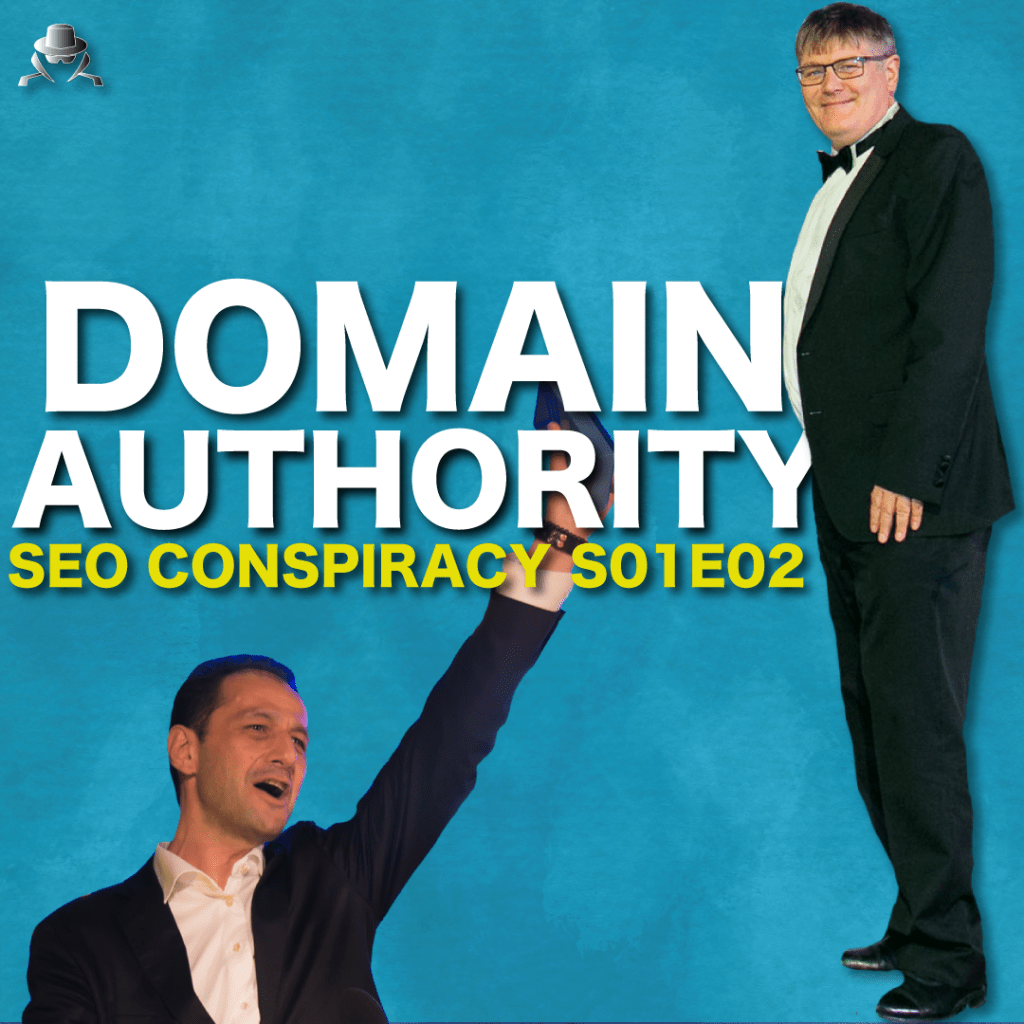THIS CONCEPT APPLIED TO GOOGLE SEO IS NOT WHAT YOU THINK.
SEO Conspiracy S01E09
Since the notion of E.A.T. (Expertise, Authority, Trust) appeared in the Google Guidelines for Quality Raters, the SEO Community became frantic about it.
Since I come from a marketing and branding background, before moving towards SEO and Digital Marketing in 2004, E.A.T is nothing new to me.
Actually, it goes way beyond SEO.
I am not 100% aligned with the version used in the Google Guidelines for Quality Raters, but I use it efficiently to upgrade the ambition of the traditional SEO Triptych based on Technic, Content, and Popularity.
Have you heard about E.A.T. used within an SEO Strategy proven to bring results?
What is your interpretation of this concept recently pushed towards the frontline of the SEO Community?
As always, this is just our opinion.
We welcome the discussion.
You know what to do.
Listen to the podcast
Watch the video
What is E-A-T?
Dixon summarizes: “E-A-T isn’t a ranking factor. It’s a set of guidelines Google uses for its human quality raters to evaluate search results. These guidelines help Google assess whether the algorithm is achieving the desired outcome.”
The guidelines are outlined in Google’s Search Quality Evaluator Guidelines—a must-read document for SEOs. While not directly tied to rankings, these principles shed light on what Google prioritizes in high-quality content.
Misconceptions About E-A-T
The biggest myth? E-A-T is a ranking factor.
Laurent clarifies: “E-A-T is a consequence of how your content, website, and brand are perceived by users and the web. It’s not a direct signal but a reflection of good SEO practices.”
Applying E-A-T in Practical SEO
- Expertise
- It’s not just about publishing content. Are you truly an expert in your field? And more importantly, can you demonstrate your expertise in a way that’s accessible and engaging?
- Laurent shares: “If you have 25 PhDs in gardening but can’t explain how to grow tomatoes to a beginner, your expertise is wasted.”
- Pro Tip: Focus on content that is both accurate and easy to understand.
- Authority
- Authority goes beyond just building links. It’s about influential voices in your industry talking about you.
- Dixon notes: “It’s a different game from traditional link building. If your competitors and industry leaders are mentioning you, that’s true authority.”
- Trustworthiness
- Trust encompasses site security, transparency, and user experience.
- Laurent explains: “Trust isn’t just about having HTTPS—it’s about creating a user-friendly environment where visitors feel safe and respected.”
E-A-T in Context: Quality Raters’ Role
Quality raters evaluate search results, not individual pages, using E-A-T principles. Dixon adds: “They’re judging the quality of the entire search result page. Their feedback informs the algorithm but doesn’t directly impact rankings.”
The Role of Topical Expertise
E-A-T emphasizes topical relevance.
Dixon elaborates: “A person or site can’t be an expert on everything. Bill Gates is a recognized expert in operating systems and philanthropy, but not in music or tennis.”
For SEO success, it’s critical to specialize and demonstrate expertise within a focused niche.
The Evolution of Contextual Relevance
Google’s ability to associate content with topics has improved dramatically. Laurent recalls: “Fifteen years ago, a website could rank for various topics. Today, niche-specific sites perform far better. Topical PageRank—the contextual relevance of links—has become crucial.”
Future Implications: Will E-A-T Stifle Innovation?
Dixon raises an intriguing point: “If Google tags established experts as authoritative, will it hinder new voices and ideas from emerging? Or will it spur innovation by creating a higher bar for quality?”
Why E-A-T Matters
While not a direct ranking factor, E-A-T provides a roadmap for creating content and building a brand that aligns with Google’s vision of quality. By adhering to these principles, you shift the responsibility of ranking your site to Google, creating a win-win scenario.


